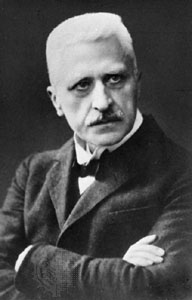A Quote by Pliny the Elder
An object in possession seldom retains the same charm that it had in pursuit.
Related Quotes
The daemonic-divine object may appear to the mind an object of horror and dread, but at the same time it is no less something that allures with a potent charm, and the creature, who trembles before it, utterly cowed and cast down, has always at the same time the impulse to turn to it, nay even to make it somehow his own.
The loved object is simply one that has shared an experience at the same moment of time, narcissistically; and the desire to be near the beloved object is at first not due to the idea of possessing it, but simply to let the two experiences compare themselves, like reflections in different mirrors. All this may precede the first look, kiss, or touch; precede ambition, pride, or envy; precede the first declarations which mark the turning point—for from here love degenerates into habit, possession, and back to loneliness.
The genocidal culture's image of woman as object and victim is paralleled by contemporary representations that continually show the Earth as a toy, machine, or violated object, as well as by the religious and scientific ideology that legitimates the possession, contamination, and destruction of Mother Earth.



































